Jim Zeigler moves state auditors into Ethics Commission offices
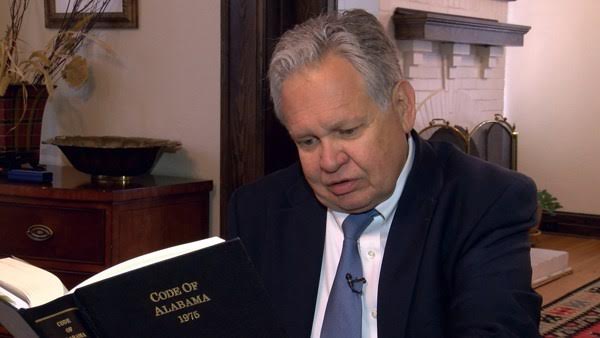
In April, Alabama State Auditor Jim Zeigler received written notice from Legislative Council informing him that he was being kicked out of the Alabama State House. Now he’s found a new home for his auditors: the Alabama Ethics Commission. The working offices of the auditors had been in the State House since July 2007, but Zeigler received notice they would have to be out by September 30, 2018, the last day of the 2018 fiscal year. Since receiving the notice, Zeigler has been on the hunt for a new office location. Enter an agreement to sublease unused space at the Alabama Ethics Commission. Finalized Friday, the sublease is for 744 square feet on the 3rd floor of the RSA Union Building was approved by Zeigler, Director of the Ethics Commission Tom Albritton, and Dr. David Bronner CEO of the Retirement Systems of Alabama, which owns the building and holds the primary lease with the Ethics Commission. The Auditor’s office will rent the space for $682 a month in 2018, which will move to $697.50 a month in 2019 and 2020, and up to $713 a month in 2021. “We are a small agency with low costs to Alabama taxpayers. We get a lot done with little space and little staff.” Zeigler said. Job of the State Auditor The State Auditor is tasked with providing accountability to the taxpayers of Alabama by maintaining accurate records of all personal property valued at $500 and above, as well as items deemed sensitive in nature. As well as serving as only check and balance between the Comptroller’s Office and the State Treasury. Zeigler has added to that traditional duty an additional role – a “watchman against government waste and mismanagement.”
Applauding the Ethics Commission’s decision on child care reimbursements

I come at the news of the Alabama Ethics Commission granting candidates the right use campaign funds for child care expenses, as a) a woman who has been an underdog, under-funded candidate (though at the time I did not have children) b) as a mother of two (with another on the way), and c) as someone who’s worked for candidates that have paid out of pocket for child care during campaigns and/or have brought their children to campaign events because of the high costs of care. On all fronts: I believe the decision is a good one, if not long overdue. Reimbursing for child care is in-line with how money is spent in campaigns, so long as you can pay for the other essential costs of campaigning, such as gas, food, etc. then there’s no reason to exclude child care. Far too often there are those who want to run for office, but lack the financial means to do so. They are essentially priced out successful campaigns. It doesn’t pay a lot to be an elected official, and it seems to cost exponentially more to run a successful campaign with every passing campaign cycle. Let’s be honest it costs a lot of money to campaign, especially when special interests, good or bad, are invested in candidates trying to keep or change the status quo. This opinion allows individuals, who otherwise lack the financial means to pay for child care out of pocket while they run, the opportunity to be in the arena and fight. For that I believe this decision is a great step forward. Campaigning can be exhausting (and it should be if done correctly). There are long hours and endless stops. These stops aren’t always appropriate for children and while I love to see kids involved in the political process, it should be the value of the experience that compels a candidate to bring them not the costs of child care. That seems to be a fact that was lost on those who opposed to the reimbursements, like Alabama Ethics Commissioner Charlie Price. Running for office shouldn’t come with a parenting penalty. Yes, one must take into account all personal factors when committing to a campaign and the potential for public service, and that should include the personal and financial tolls it will take on a family, but no family should be excluded or put out because of reasonable and justifiable costs associated with child care. There’s enough barriers already and we need good people to run and hold office — which absolutely includes parents. My hope is that as we move forward candidates don’t take advantage of this and keep the strict guidelines of campaign interest in mind when they seek reimbursements. There’s always going to be bad seeds, and there’s always going to be those who abuse the system, live off their campaign funds and have careless spending habits, but let’s face it: child care is an essential component for those parents who wants to get out there and make their voices heard. So simply put: Kudos to the FEC and Alabama Ethics Commission for making the right decision for families.
Following FEC ruling, Alabama candidate permitted to use campaign funds for child care expenses

The Federal Election Commission (FEC) in May ruled unanimously that federal candidates can use campaign funds to pay for child care costs that result from time spent running for office. The FEC justified their decision by saying the candidate’s child care needs were a direct result of her running for office and essential to her continuing to do so. Thus, the spending would not be considered a violation of rules that prohibit personal spending. Since the FEC only regulates federal election campaign finance, an Alabama candidate for the State House District 45, Democrat Jennifer Gray, requested a formal opinion from the Alabama Ethics Commission as to whether or not she could do the same. In her request Gray explained she would not have needed the child care had she need been a candidate. And without child care, she cannot participate in campaign activities like attending Chamber of Commerce meeting, meeting with constituents, canvassing or phone banking. Unlike the FEC, the Ethics Commission decision was not a unanimous one. In a 3-1 ruling, they decided Gray may use her campaign funds as such expenses would not exist “irrespective of the candidate’s campaign officeholder duties.” “[Gray] may use campaign funds to pay for the childcare expenses described in the request to the extent such expenses are incurred as a direct result of campaign activity and are tied to specific campaign events,” said Jerry L. Fielding, Chair of the Alabama Ethics Commission, in the decision. But the Commission didn’t make a blanket ruling for all candidates. They clearly concluded their ruling stating, “The conclusion reached herein applies only to these facts and may not be applied beyond these facts.” They also ruled that Gray must disclose her child care expenses so that donors know exactly where the funds are going. “The payments must be reasonable and customary for the services rendered, and the campaign must properly document the expenditures,” the decision read.
Fairhope’s hiring of new police sergeant making waves in local government

Fairhope Mayor Karin Wilson is under fire regarding an appointment she made in late February. Wilson announced the hiring of Tony Goubil, the city’s new police sergeant and public safety director, at a council meeting on February 26. The council and Fairhope Police Chief Joseph Petties, who were not informed of Goubil’s hiring prior to her announcing the decision, were both astonished at the announcement. Wilson shared her reasonings and excitement for the announcement in a Facebook post: “The hiring of Tony Goubil is a point of pride for me and for this City. His passion for safety is going to help catapult our incredible police department to far greater heights. When you have an opportunity to hire someone with this amount of experience to meet a great and growing city need, you take it. Some are casting the filling of this need in a negative light. I can assure you it is not. When a position opens up in any department, under my administration, we will make it available to all deserving and qualified individuals.” However, questions have arisen about Goubil’s hiring after baldwin county local paper, The Courier, discovered that he met with multiple sources in Fairhope concerning ethics claims filed with the Alabama Ethics Commission commission against Wilson. According to The Courier, the Alabama Ethics Commission sent Goubil to investigate a complaint filed against Wilson, and although the complaint was dismissed, “those who filed the claims questioned how Goubil’s investigations into those claims could be trusted in the light of his hiring by Wilson.” The Alabama Ethics Commission has policies in place to prevent this kind of ethical delimma. A memo released in 2017 from the commission’s Executive Director Thomas Albritton said, “once you leave your public employer, for two years you may not go to work for a private business or an individual you audited or investigated while you were a public employee.” The Courier, obtained an e-mail sent to Wilson from Petties. The e-mail, dated March 6, Petties expressed his apprehensions and thoughts about Goubil: I wanted to inform you of the conditions of my department. My Department has been in an uproar ever since Monday, February 26, the night you announced the hiring of Tony Goubil. I was inundated with phone calls that night about something that I had no knowledge of. I am not understanding how someone can be hired under my Department without my knowledge and without any input from me. This has been handled totally different than any hires in the past. I have been a police officer with Fairhope for 27 years and a Sergeant has never been brought in from outside. My officers feel as though they weren’t given an opportunity to apply for the promotion and those that have gone through the process for promotion feel slighted. They feel that it’s not what you do, but who you know. Where’s their motivation to work hard knowing that they do not have an opportunity for promotion. This has caused not one, but all 35 officers to be upset, not to mention my non-sworn employees. The chain-of-command has been completely undermined, thus making it nonexistent. We’ve had two officer involved shootings within the last 6 months. My officers need to be focused on their safety and training and not concerned about which channel their command comes from. I need my employees to stand behind me and support me and in return, I support them. This can’t happen if I am being undermined. I understand that you are authorized to hire and fire, but these decisions need to be carefully considered. The morale and motivation within my Department is the lowest I’ve ever seen at a time when they need to be galvanized behind their leader. I do not need their focus misplaced with worry as to the state of our Department. We’ve got officers that have been off probation for over a year and a half and have not received the standard increase. I am in danger of losing these officers. Due to the lack of qualified applications being received it would be hard to replace these officers. We used to be able to attract officers from surrounding agencies, but with the perceived turmoil within the City, we are no longer attracting those applicants. I’m not sure how we have the money in the budget to award such a position that has been given to Mr. Goubil. Petties isn’t the only Fairhope official in an “uproar” over the unexpected hiring. “This stinks to high heaven,” Councilman Kevin Boone told The Courier. “To me, this seems almost the same as Gov. Bentley offering Luther Strange the Senate seat to end the investigation into him. This just seems incredibly wrong.” “This doesn’t pass the smell test, It’s highly disheartening that our city is once again in the news for missteps taken by the mayor,” Council President Jack Burrell said in the same report. Wilson said in a statement to The Lagniappe; “He (Burrell) was involved in some of the complaints, investigations and complaints are two totally different things. People file frivolous complaints all day long, I can assure you. I’m sure that by upsetting the apple cart there’s a lot of tit for tat and there’s a lot of complaints against me.” Councilman Robert Brown and Boone are questioning Wilson’s authority to create what they feel is a new position. “There is no such position nor is one budgeted,” Brown told The Courier. “Mr. Goubil could fill Officer Bishop’s position; however, that is another issue. There is no full time SRO position, much less two. There was no communication with council, who is the funding authority. A position is not funded or created until council has approved the position.” “There was nothing done inappropriately, if anything, it’s the best hire we’ve made as far as doing proper procedures in that department than has been made. This is an all-encompassing person that’s going to really help plan for Fairhope’s future. Citizens should applaud,” Wilson told The Lagniappe.
Ethics Commission director says bill weakens ethics law

The director of the state Ethics Commission said a bill before Alabama lawmakers could open up a potentially wide loophole in state ethics law by carving out an exemption for people doing economic development work. “I think it’s a bad bill that weakens the ethics law considerably,” Alabama Ethics Commission Executive Director Tom Albritton said. The House of Representatives on Tuesday approved a bill to exempt economic developers from the definition of lobbyist under the state ethics law. Supporters argued it is needed to help Alabama compete with other states for projects and factories by keeping developers’ activity confidential, but critics said it opens up an exemption in the ethics law that governs interactions with government officials. The bill says that an economic development professional — defined as a person who does full-time economic development work or works part-time and is “precertified” by the Ethics Commission — shall not be considered a lobbyist. “It exempts people from the definition of lobbying when I think most people would agree that what they are doing is in fact lobbying,” Albritton said. “You are also declaring that the other portions of the ethics act related to a lobbyist’s transaction with public officials no longer apply to them. That’s where the problem lies in my view.” He said another danger is that “economic development is “often used as kind of catch all designation for activity that people want to conduct with executive branch agencies, or executive offices or the legislature itself.” “At the end of the day, there’s a good bit of activity that could be argued is economic development,” Albritton said. Alabama Commerce Secretary Greg Canfield, who oversees the state’s industry recruitment efforts, said his department and professional economic developers asked for the legislation because of confusion that began arising in 2015 on whether developers should register as lobbyists. “If we don’t clarify this under the law, professional site consultants are going to draw a big red line around Alabama,” Canfield said. “That red line is going to say avoid bringing projects to the state of Alabama because there are too many states that will, for one, protect the confidentiality of your project and two, not require you go through training and registration on a regular basis. It will be easier to conduct professional economic development activities in these other states,” Canfield said. Rep. Ken Johnson, the bill’s sponsor, said the state should not put a “hurdle” on professional site developers by requiring them to register as lobbyists. Johnson said the five-member Alabama Ethics Commission previously tabled an advisory opinion on the matter so lawmakers could attempt to address the issue. Johnson said he believes lawmakers have prevented it from becoming a wide loophole by specifying that the exemption couldn’t be claimed by legislators, other public officials and people who are otherwise lobbyists. The Alabama Attorney General Steve Marshall said he opposed the bill at first but was pleased with changes to the bill, before its House passage, that he said creates a “narrowly-drawn exemption for full-time economic development professionals.” Albritton said a better way, in his view, would be to keep the developers under the state ethics law, but allow the reports on their activity to remain confidential for a period of time so deals in the making are not publicly disclosed. The bill now moves to the Alabama Senate. Senate President Pro Tem Del Marsh said he wanted to speak with both Marshall’s office and the state ethics commission. “I’m not going to move anything unless the attorney general and the ethics commission are on board with it,” Marsh said. Republished with the permission of the Associated Press.
U.S. Senate candidates Roy Moore, Luther Strange, Ed Henry report income, debt
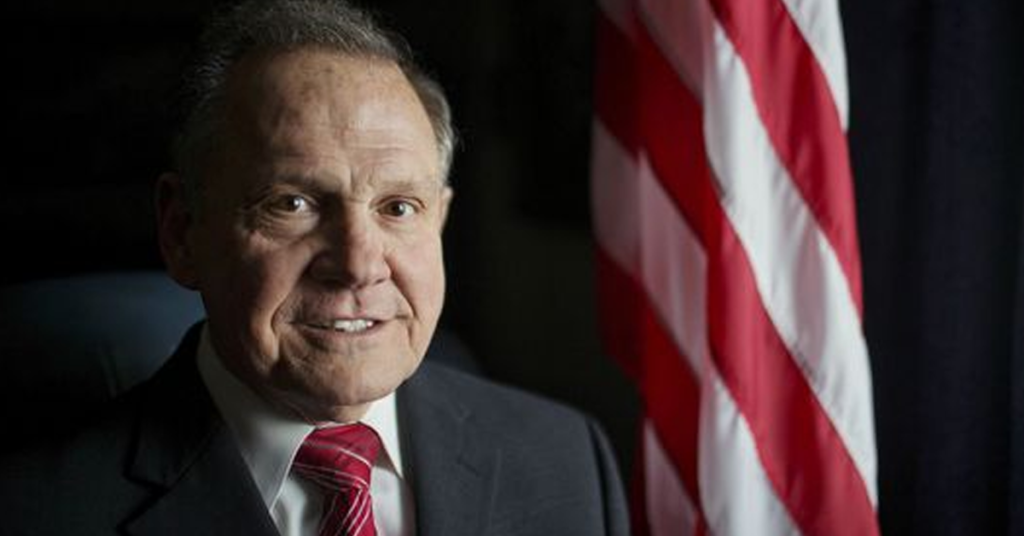
Even through suspension, former Alabama Supreme Court Chief Justice Roy Moore had a decent payday last year, taking in $150,000, mostly through speaking engagements. Al.com is reporting that Moore was one of three Republican candidates seeking the U.S. Senate seat filed documents this month with the Alabama Ethics Commission. Also filing was Sen. Luther Strange, the former Attorney General who now holds the seat. Elected officials are required to report economic interests, detailing income and expenses. Moore, Strange and Hartsville Republican State Rep. Ed Henry each submitted ethics statements. Dr. Randy Brinson, former head of the Christian Coalition of Alabama, is not an elected official and therefore not required to file. Last month, Gov. Kay Ivey moved up the Senate special election primary for Aug. 15; the general election is Dec. 12. Records show Moore made $181,000 a year before his suspension over his defiance of a Supreme Court order on same–sex marriage. According to Al.com, Moore also listed speaking fees of between $50,000 — $150,000 in 2016 and Social Security income between $10,000 — $50,000. Moore’s wife, Kayla, earned a salary of between $10,000 — $50,000 from Nichols Construction. She also made over $10,000 last year as president of the Foundation for Moral Law, which Roy Moore once led. Moore has two bank debts of less than $25,000 each, and a credit union loan totaling between $150,000 and $250,000. As for Strange, he earned about $168,000 as Alabama Attorney General, and earns $174,000 a year as U.S. Senator. Strange’s wife holds a part–time job at the Alys Stephens Center at UAB — earning more than $10,000; $1,000–$10,000 in director’s fees from Oakworth Capital Bank; $1,000 — $10,000 in rental income from condominiums in North Carolina and Needle Rush Point in Pensacola; pension income of $10,000–$50,000; and investment income of $50,000–$150,000. Strange’s property in Lineville, North Carolina, has a listed value of $250,000, generating less than $10,000 in rental income. The senator’s debts include $150,000–$250,000 and mortgages between $150,000–$250,000. He also lists an individual or business debt of between $25,000. Al.com notes that Henry, as a state representative, is considered a part–time employee earning $42,830 annually. He reports interests in two businesses: My Practice 24 and Lightwire Solutions. Henry owns 50 percent of My Practice 24, a chronic care management system servicing physicians, and 30 percent of Lightwire, an information technology company in Decatur, each providing more than $10,000 in income. Henry’s debts include less than $25,000 each and mortgage debt of between $50,000–$100,000.
Victory for political speech in Alabama, in-person ethics training requirement dropped

Move over burdensome ethics requirements, a victory for free speech is coming through. On Monday, the Virginia-based public interest law firm Institute for Justice (IJ) announced that following their federal lawsuit, that they filed on behalf of Maggie Ellinger-Locke and the Marijuana Policy Project (MPP), the Alabama Ethics Commission dropped its burdensome, in-state training requirement for private citizens who want to speak with state lawmakers. Previously, Alabama law required all registered lobbyists — and the state has expansive definition of “lobbyist” would — to physically attend an ethics class offered only four times a year and in only one place – Montgomery. This requirement presented a major hurdle for Maggie Ellinger-Locke, who works at the MPP headquarters in Washington, DC and wanted to reach out to Alabama officials to behalf of the company. She had intended to contact them by phone, but under Alabama’s lobbying laws, those phone calls would have required Maggie to register as an official lobbyist and travel nearly 800 miles, to Montgomery, to attend the state’s hour-long ethics class. The Ethics Commission has now dropped the wearying rule and has agreed lobbyists can take the training online rather than physically traveling to the Yellowhammer State. “Lobbying government officials about matters of public policy rests at the very core of the First Amendment’s protection for the right to petition the government,” said Paul Sherman, a senior attorney with IJ, which represents Maggie and MPP. “We are glad that the Ethics Commission agreed to a common-sense fix that honors the right of citizens from across the country to talk to lawmakers free from unreasonable regulation.” According to a press release from the IJ, “while other states have ethics-training requirements for lobbyists, Alabama was unique in requiring people to physically travel to the state capital to comply with the law.” Public records indicated that at the time Maggie filed her lawsuit, more than 15 percent of Alabama’s registered lobbyists lived outside Alabama and that all registered lobbyists lived, on average, more than 130 miles from Montgomery. “I’m thrilled that the Ethics Commission has brought its law into the twenty-first century,” said Maggie. “It’s critical that states make it easier—not harder—for Americans to communicate with their elected officials.” Live-streaming training from the Ethics Commission will be available by May 2017.
Ethics Commission clears Rebekah Mason in Jim Zeigler complaint
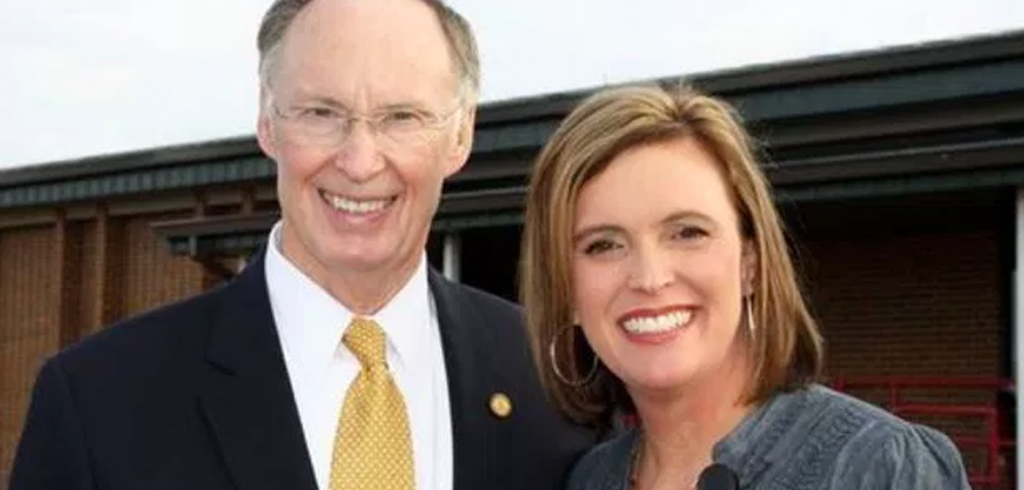
The former Senior Policy Adviser and alleged mistress of former-Gov. Robert Bentley was cleared Thursday by the Alabama Ethics Commission against accusations brought forth by State Auditor Jim Zeigler. Zeigler had named Mason in a complaint filed March 25, 2016 with the Ethics Commission, which according to Zeigler, launched a year-long investigation that ultimately resulted in finding probable cause Bentley violated state law. Zeigler reportedly included in his complaint the allegation that Bentley and Mason set up a “dark money” group to receive funds from unknown donors and spend it without accountability. Named among the group’s donors was ACEGOV, the Alabama Council for Excellent Government, a nonprofit founded by Bentley, which partially paid Mason. On April 5, the Ethics Commission met and held ten hours of hearings on complaints against Bentley and Mason, in which they were unable to prove Mason was guilty of an ethics violation. The Commission concluded, upon review of the evidence from the investigation, that there was not probable cause to believe that Rebekah Caldwell Mason committed a violation of the Alabama Ethics Act. Accordingly, your complaint has been dismissed. Should you provide any additional information that would warrant a reopening of this case, a new investigation would be conducted. Zeigler says he now looking to see if other options are available to continue to the investigation. Read the full letter from the Ethics Commission below:
Alabama GOP left to regroup after Robert Bentley debacle
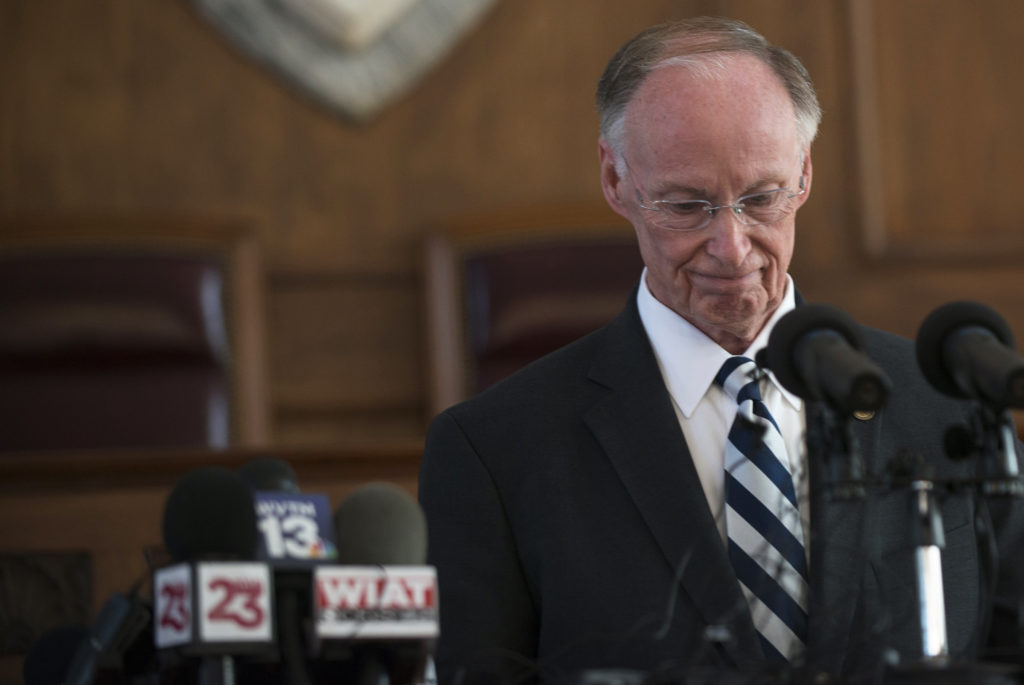
Alabama Republicans who pledged honest government when they won control of the state now have what might be their toughest job yet: picking up the pieces after a third top GOP leader was run out of office in only nine months. Gov. Robert Bentley pleaded guilty to misdemeanor campaign finance charges and resigned Monday rather than face the possibility of more severe charges and impeachment by the Legislature, which was reviewing allegations linked to his alleged affair with a female aide. Appearing sullen during a plea hearing and later proclaiming his love for the state during a farewell address, Bentley joined House Speaker Mike Hubbard and Alabama Chief Justice Roy Moore on the sidelines of power after being forced from positions atop a branch of government in Montgomery. Hubbard was convicted of felony ethics violations last June and is free on bond while appealing. Moore is suspended from his job as the head of the state’s judiciary after being convicted in September of violating judicial ethics with an order against same-sex marriage. Bentley’s replacement, GOP Lt. Gov. Kay Ivey, promised an open administration after months of news reports and rumors about the 74-year-old governor’s alleged affair with an adviser nearly three decades his junior. “It will be transparent. And it will be honest,” Ivey said. But sensing an opening in a deeply conservative state where Christian values play well at election time, state Democrats pounced. “Republican corruption has spread like kudzu throughout our state,” Democratic Party chair Nancy Worley said in a statement. She added: “To get elected, Republicans told Alabamians they were the party of integrity and family values, yet they govern by fattening their own pockets, having love affairs, and disrespecting the founding principles of our government.” Alabama’s GOP Steering Committee had called for Bentley’s resignation, as had the Republican leaders of both the House and Senate. Bentley, a 74-year-old family-values conservative who won two terms partly because of his reputation for moral rectitude, was first engulfed in scandal a year ago after recordings surfaced of him making sexually charged comments to 45-year-old political adviser Rebekah Caldwell Mason. Last week, the Alabama Ethics Commission cited evidence that Bentley broke state ethics and campaign laws and referred the matter to prosecutors who could have sought felony charges tougher than the misdemeanors to which Bentley pleaded guilty. Just days later, an investigative report prepared for the House Judiciary Committee said Bentley encouraged an “atmosphere of intimidation” to keep the story under wraps and directed law enforcement officers to track down and seize the recordings. The report portrayed the governor as paranoid and obsessed with trying to keep the relationship secret. The committee on Monday started what was expected to be days of hearings leading to a vote on possible impeachment, but Bentley’s departure stopped the process cold. He invoked his Christian faith during a farewell address in the Capitol. “There’ve been times that I let you and our people down, and I’m sorry for that,” Bentley said in the old House chamber of Alabama’s Capitol after he pleaded guilty. One misdemeanor charge against Bentley stemmed from a $50,000 loan he made to his campaign in November that investigators said he failed to report until January. State law says major contributions should be reported within a few days. The other charge stemmed from his use of campaign funds to pay nearly $9,000 in legal bills for Mason last year. “He did what he did and he deserves now to be called a criminal,” said Ellen Brooks, a retired district attorney overseeing the state investigation. The plea agreement specified that Bentley must surrender campaign funds totaling nearly $37,000 within a week and perform 100 hours of community service as a physician. The dermatologist also cannot seek public office again, but he said he plans to help the state in some, unspecified way. Ivey became Alabama’s second female governor. The first was Lurleen Wallace, wife of segregationist and four-term Gov. George C. Wallace. She ran as a surrogate for her still-powerful husband in 1966 when he couldn’t seek re-election because of term limits. She won but died in office in 1968. Republished with permission of The Associated Press.
Robert Bentley says he won’t resign

During a Friday morning press conference, Alabama Governor Robert Bentley announced he has no plans of resigning. “I do not plan to resign,” said Bentley from the steps of the state capitol in Montgomery. “I have done nothing illegal. If the people want to know if I misused state resources, the answer is simply no, I have not.” On Wednesday, the Alabama Ethics Commission found probable cause the governor had violated both ethics law and campaign finance law. Bentley, 73, has long maintained his innocence. However, last spring he admitted making inappropriate remarks to his senior political adviser, Rebekah Caldwell Mason, who has since resigned. The admission came after former Alabama Law Enforcement Secretary Spencer Collier, a day after being fired by Bentley, accused the governor of having an affair with Mason and of interfering with law enforcement investigations. Bentley has denied both accusations. Following the news, twenty-three representatives signed articles of impeachment, accusing Bentley of willful neglect of duty and corruption in office. The impeachment investigation followed. On Friday, the Alabama House Judiciary Committee is scheduled to receive a report detailing the findings of the nearly year-long investigation. “Those who are taking pleasure in humiliating me, in shaming me and shaming my family, shaming my friends, well I really don’t understand why they want to do that,” Bentley said Friday morning. “It may be out of vengeance, it may be out of jealousy, it may be out of anger, it may be out of personal political benefit. I don’t know. But I would ask them to please stop.” The House of Representatives is scheduled to begin impeachment hearings on Monday.
Robert Bentley impeachment hearing schedule released
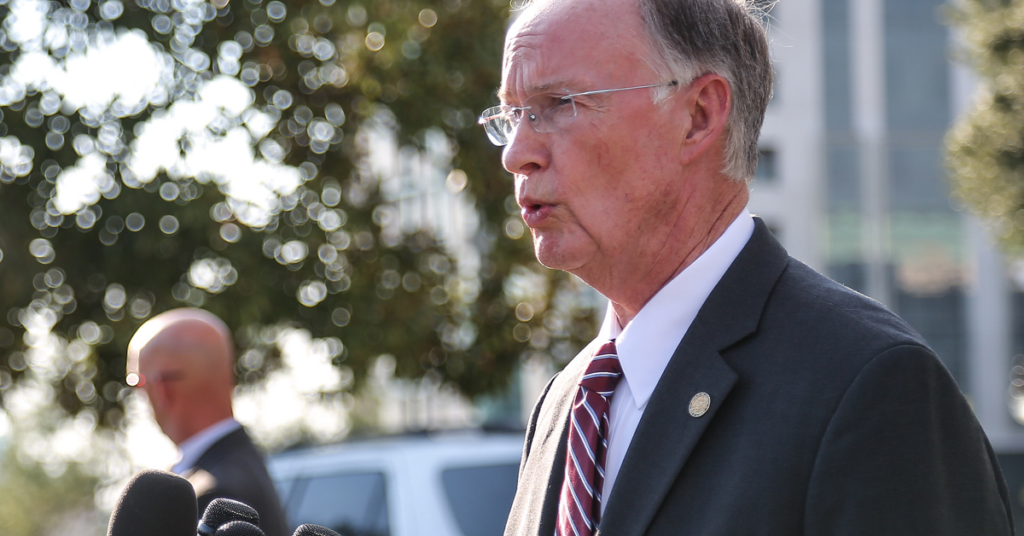
Alabama lawmakers have announced a schedule for impeachment hearings against Gov. Robert Bentley. House Judiciary Committee Chairman Mike Jones told lawmakers that it was “time to put this in front of us.” The committee, after hearing arguments and testimony, will make a recommendation to the full House of Representatives over whether Bentley committed any impeachable offenses. The hearings will begin Monday and last through the week. Under the announced schedule, the committee would vote on April 14. The announcement came a day after the Alabama Ethics Commission found probable cause that Bentley violated state ethics and campaign finance law. Bentley has maintained he has done nothing illegal or to merit his removal from office. Republished with permission of The Associated Press.
Ethics panel sends Robert Bentley’s case to prosecutors
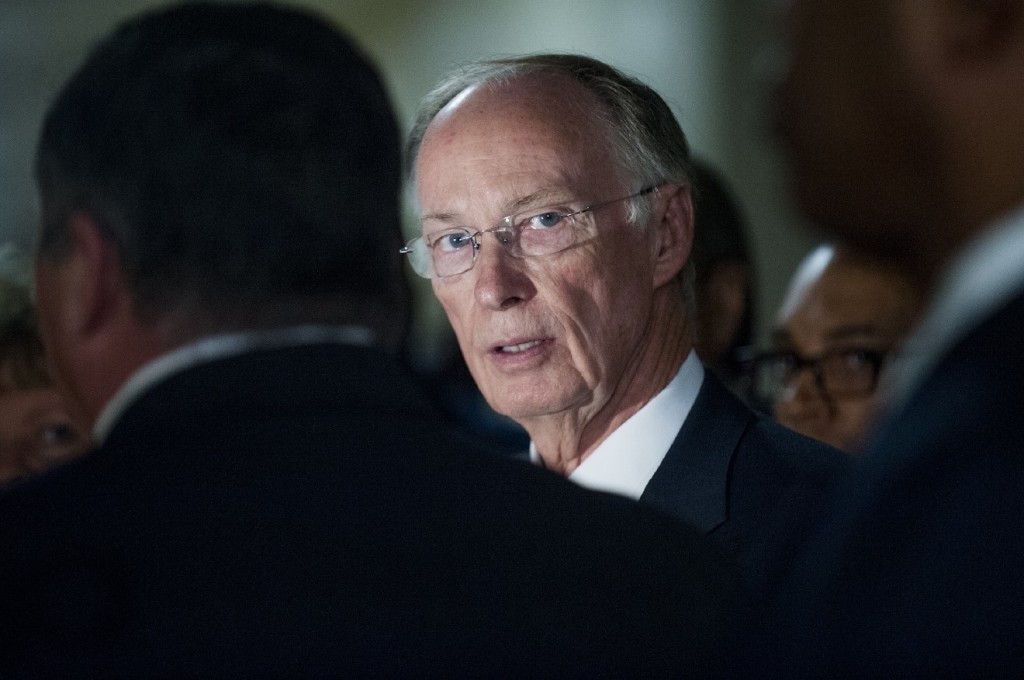
A state ethics panel has ruled that there is probable cause Alabama Gov. Robert Bentley violated state ethics and campaign finance law in a sex-tinged scandal that has engulfed him for more than a year. The Alabama Ethics Commission voted Wednesday to refer the matter to the district attorney’s office for possible prosecution. The 74-year-old governor has struggled to shake off a scandal after recordings surfaced last year of him making suggestive remarks to a female aide before his divorce. Bentley has admitted making personal mistakes but denied doing anything illegal or that would merit his removal from office. The commission found probable cause that Bentley misused state resources and improperly accepting a campaign contribution and loan outside allowed fundraising windows. Republished with permission of The Associated Press.


